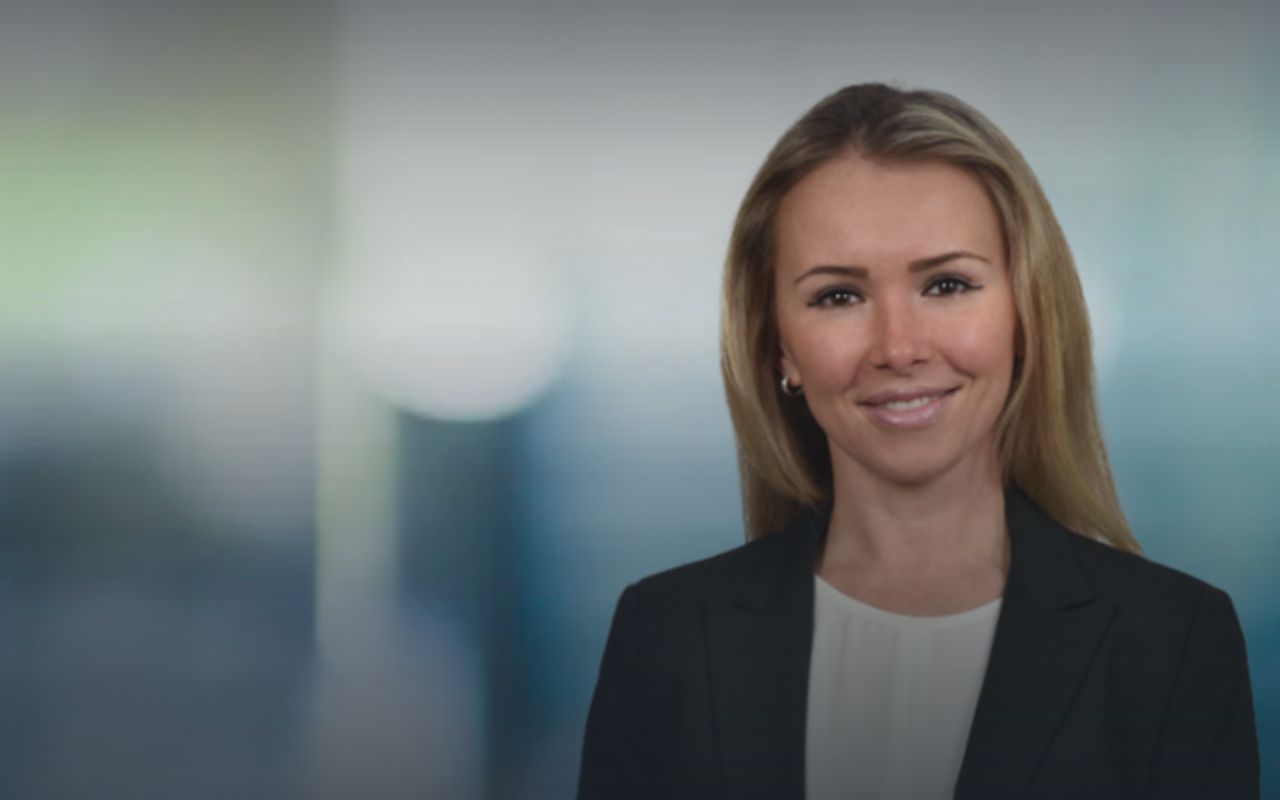https://www.eisneramper.com/anastasiya-lopatnikova/
We were privileged to have Anastasiya Lopatnikova, audit director at Eisner Amper, engage in an insightful conversation with 100WF Chief Operating Officer Nicole Wiley. Anastasiya delves into her remarkable career and imparts the valuable wisdom she has gathered, speaking candidly about the lessons she has learned and the experiences that have shaped her professional path.
Perhaps the best starting point is your journey’s inception. You’ve had a long and fruitful career in public accounting, tackling intriguing clients and complex issues. Your day-to-day interactions involve numerous senior individuals across various client firms—an impressive feat, especially with children in the mix. Generally, this isn’t a typical childhood dream profession. So let’s begin with your early aspirations: What did you envision for your future as a child, and what path led you to your current position?
As a child, my imagination was vast, and I observed the world around me with curiosity. There were numerous careers I aspired to pursue. I wanted to become a hairdresser, a stewardess and, eventually, a pediatrician—the latter particularly after developing a love for children. At one point, I even considered becoming a teacher.
Reflecting on my upbringing, I realize we didn’t have access to many resources. Watching my daughter now, I’m grateful for the toys and supplies she has to help her grow and develop. She aspires to be a teacher, equipped with a board, markers, erasers, and colorful magnets. In contrast, my sister and I used the back of white doors as our makeshift whiteboards when we were young. Removing the marker stains was challenging, but the experience was memorable and enjoyable. Now in my forties, I fondly recall those moments and appreciate how far I’ve come.
When it was time for you to attend university, what was it that guided your choice?
Even in school, I was best at math and the numbers and everything we deal with in math classes or even in our daily lives. In high school there were no accounting classes. It was just math. When I went to college, basically my husband had a best friend, and he was an accountant, and I was still trying to get into this college life, into American life. Just looking at him and how successful he was, probably that’s what drove me—the love of math, the success of this friend, and maybe not knowing anything else, or maybe I was afraid of getting into something that I didn’t have help with, or I didn’t know how to get into other areas. So from day one, accounting was the way to go.
I think you just hit on something important there, which is having a visible role model to point to, either male or female.
Absolutely, especially in this world today; it is so competitive. I have great colleagues. I have great friends at work. I have great friends outside of the firm, outside of work. Sometimes advice comes from the left and right, but you also need to be smart enough to take certain advice and just see where people are coming from.
Let’s talk about your day job, how you made your way there, how your career has changed over time, and how you’ve become the better version of yourself through your professional career.
I’ll start with what I do, auditing. From day one, once I graduated from college, I got into auditing. I did not have any other experience. Auditing and being in financial services are my bread and butter. Literally, I do not know anything else—maybe a little bit of taxes—but that’s pretty much it.
It was great that, from day one, I started with a great firm. It was a midsize firm that had a good, firm culture. That’s where I started to grow as a professional, where I started to network and build my own career. I met several role models within that firm. I was able to listen to their advice.
I’ve been at two great midsizems. This is my second firm, EisnerAmper. That’s where I am right now. I’m pretty sure that this will be my home run. I’m not planning on going anywhere. I guess that’s the way I am; I don’t like any changes. I don’t like to jump around. I like my people. I like my senior managers. I like my colleagues and my staff and to just basically audit because this is all I know. This is what I have done for the past fifteen, seventeen years. But having those people in my life at the first firm and here at Eisner, it is a great gift.
Another thing that maybe kept me where I am and kept me interested during the span of all these years: Every day is not the same. Yes, maybe you do have the same clients over the years, but every year you get more clients. Some funds are closing, liquidating. There could be different circumstances, but you do get new clients. And even [with] your old clients, there’s always something new.
I’d love to discuss with you some of the transitions in your career, how those transitions went for you—maybe what things came easier for you and what things took a little more time to develop as a new skill.
When I was a junior auditor I started with a big team [that] was already in place. I was an observer of the work done by my managers. I guess I was always progressing, always looking for great advice from people who were good role models, and I learned from them, and that transition part wasn’t too difficult. Obviously, with more experience, I was assigned to a more complex client, new staff, but again, this was natural. I don’t want to say that I was an expert, but I was always getting great evaluations. I was always getting, I don’t know, let’s say straight As.
As far as networking, I’m more on the shy side than most. I’m more reserved. And just to overcome this shyness was difficult—just to reach out to people, to invite them for coffee, or to invite them to have lunch and just to explain to them what I wanted to do in my life because that was part of my career, part of my profession.
Developing relationships with staff was smooth. I enjoyed it, being part of big teams, but this networking was still a challenge, and it took a lot of time. At that point I had a child. She was young, a baby, so I had a babysitter staying over sometimes.
Sometimes it looks like networking is easy. You have a glass of wine, and you just talk to people. But it’s a lot of work. In addition, when you have those events or seminars a few times a week, by the time you get to the weekend, you are done.
I knew early that if I [was] going to start networking, if I [was] going to start this business development process, I [would] get benefits out of it, and the firm [would] get benefits out of it.
A lot of the time, when the need for real networking starts is when women start families. I would love to hear more about how you manage your day-to-day now that your children are getting older but still require a lot of care. How do you prioritize, realizing it changes day to day?
As far as being a mom and having a baby at home, it was very challenging. But I want to say my husband, he was a great help for me. He knew from day one that I’m so career oriented. He never said, “No, you need to be home at six o’clock.” So he knew what I was doing. Just to have his shoulders and his support helped me a lot.
Yes, I did have a nanny because, otherwise, we would’ve lost [our] sanity at home. There were a few instances where she stayed overnight, but again, she was there till 7 o’clock, 8 o’clock [at night], and after that, my husband picked up daddy responsibility. That’s how I managed networking. On the weekends, obviously, I try to be 100 percent devoted to my child, to just be with her and observe her, see how she’s growing, and hear those first words or see those first steps. To be honest with you, some of those milestones I missed.
My son, he was born in 2018, and I was home due to COVID. That’s how I was able to observe his milestones and spend more time with him.
It’s all about those logistics. Yes, they’re bathed and get enough sleep. They’re not hungry; they eat, but those logistics were difficult. My husband has a great career as well, and he’s a full-time daddy. I’m a full-time mommy. I don’t want to be a stay-at-home mom, maybe on a part-time basis, but definitely not. It’s not because I don’t like kids, but I like my career. I like what I do.
Since you were raising a daughter, what guidance do you give her? She’s obviously still quite young but developing her own interests and has her own identity. What kind of guidance do you give to her, not just as her mom but as a role model?
As a role model, and again, I read a great article a few months ago, I don’t know, maybe during COVID or maybe right after COVID, and she was old enough to at least listen and to take certain advice. What I’m telling her right now is to trust herself—to trust herself and to be proud of herself. She’s great. She’s great at school. She has great grades, but she’s also more reserved. I guess she is like me. My son, he’s a complete mirror of my husband. But my daughter, I’m trying to explain to her that she can be more open, especially at this age with a girl, with kids at school. That will maybe come as she gets older, but sometimes she comes in, and she tries something, and she drops, and she says, “I cannot do this. I don’t trust myself. I cannot be proud of myself.” These are the words that I repeat, and that’s what I’m trying to tell her: No matter what happens, even [if] sometimes something doesn’t happen or something [is] not the way you like it, be proud of yourself and trust yourself.
Now every time she goes to her bus in the morning, there are four words that we exchange. We say, “I love you, I miss you, I trust you, and I’m proud of you.”
Well, thank you so much. I love chatting with you.
Thank you, Nicole. I so much appreciate it. I hope we can meet sometime in person, maybe in the city just to grab a coffee, something at least quick so I can give you a hug.

